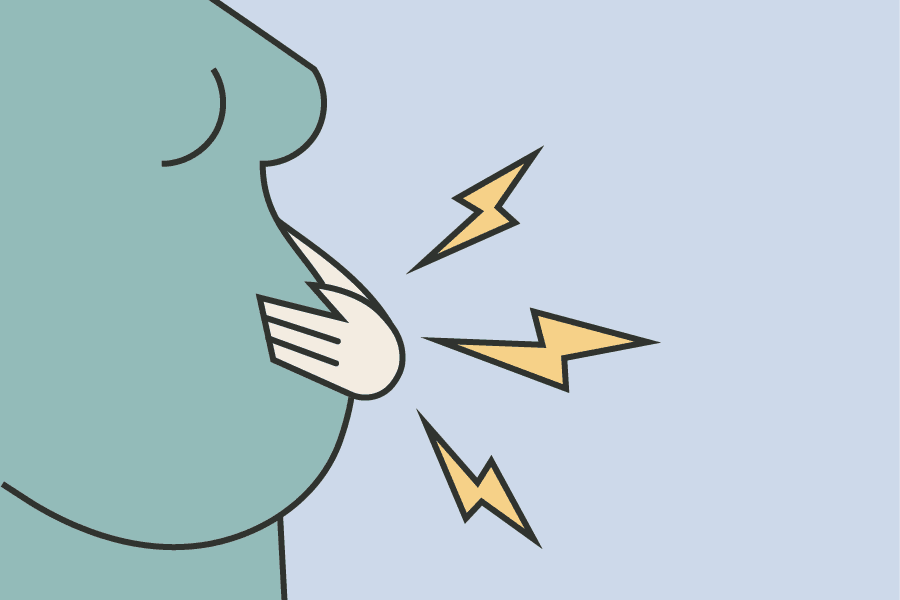Gastrointestinal diseases are divided into two groups: organic and functional. An organic disease involves the presence of antibodies or inflammation, such as in celiac disease (gluten intolerance), IBD (Ulcerative colitis and Crohn's disease), gastritis, and stomach ulcers. A functional gastrointestinal disease means that no obvious issue is found in the intestines; they just don't function as they should. The two most common functional gastrointestinal diseases are IBS and functional dyspepsia. IBS stands for Irritable Bowel Syndrome Approximately 15-20% of the world's population has IBS, of which around 70% are women. While 95% of those seeking medical care for IBS are women, an increasing number of men, children, and adolescents are now seeking help for gut-related issues. Stress is a significant factor in the development of IBS, and mental health issues such as depression and anxiety are common among those with IBS.
Why do people get IBS?
The reasons as to why some individuals develop IBS and why others don’t are unclear, Many factors such as genetics, illness and stress can trigger it to develop. For example, school or work-related stress can be a major reason why some people experience IBS. An infection that affects the gut, known as PI-IBS (post-infectious IBS) can also increase the risk of its development, as well as the use of antibiotics. In many cases, IBS can develop without an obvious reason. It’s not uncommon for individuals to have experienced gut issues for an extended period and in some cases for as long as they can remember.
It isn’t uncommon for parents and children to suffer from similar gut-related symptoms as the hereditary factor in IBS is around 20-30%. Current knowledge suggests that individuals with IBS may have a motor disorder affecting the intestines, causing them to work too quickly, too slowly, or in an on-and-off pattern. This can lead to difficulty in passing wind causing it to "bubble around" inside the stomach. Reflexes in the intestines may be either heightened or weakened. People with IBS often have increased sensitivity to pain in the intestines and receive more signals from the gut to the brain, making them more aware of the sensations in their gut. Imbalances in the gut flora, known as dysbiosis, can also be a cause of IBS.
Diagnosis
There are criteria for diagnosing IBS, but there are no specific biomarkers that are used to diagnose IBS and a diagnosis is commonly done based on clinical symptoms. An individual is typically tested for lactose intolerance and coeliac disease in order to rule these out as their symptoms can often be very similar to the symptoms of IBS. It is essential to rule out other diseases, especially for those that present with symptoms such as fever, blood in the stool, involuntary weight loss, nocturnal issues, and onset of symptoms after the age of 45. These symptoms are NOT associated with IBS and should be further investigated before treatment.
IBS is classified into four main groups: IBS-C (constipation-dominant), IBS-D (diarrhea-dominant), IBS-M (mixed bowel habits), or IBS-U (unclassified IBS). Each group comprises approximately 25% of IBS diagnosis. Constipation is defined as fewer than three bowel movements per week, and diarrhea is defined as more than three loose stools per day.
Common symptoms
The most common symptoms of IBS include:
- bloating
- pain or discomfort
- bowel irregularities such as diarrhea, constipation, or alternating bowel habits
Other symptoms may include:
- wind
- cramps
- sounds
- sensations of incomplete bowel movements
Many people report feeling constipated despite daily visits to the toilet. Incomplete bowel emptying affects a large portion of those with IBS, regardless of whether it is constipation or diarrhea-dominant.
Some experience pain on the right or left side just below the ribcage, where the colon makes two significant turns. Pain on the left side is somewhat more common (from a self-reporting perspective). Symptoms such as heart palpitations, chest pressure, palpitations, anxiety, and restlessness can also occur and may be linked to the intestine through the vagus nerve. Note that these symptoms should always be investigated by a cardiologist first. Symptoms from the upper part of the gastrointestinal tract, such as reflux, heartburn, and nausea, are also common and may be related to IBS, as gas and bloating can exert pressure upwards, causing these symptoms. Some with IBS also experience urinary urgency and other more diffuse symptoms, such as sleep problems, lack of energy, and fatigue.
Belly Balance Belly Balance is a digital IBS (Irritable Bowel Syndrome) treatment that helps you take control of your stomach. For more information about the service, visit Belly Balance's website and download the app.
Source:
- 1177.se
